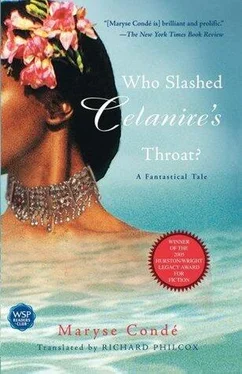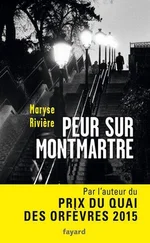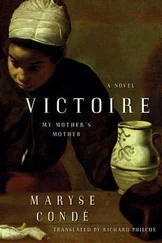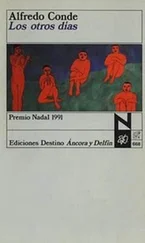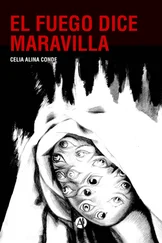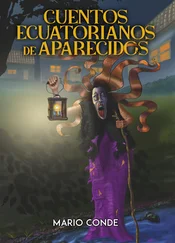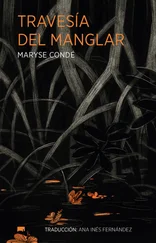A few months after arriving in town, he was referred to a certain Papa Doc for a nagging dysentery. Papa Doc was doing time for rape of a minor, and his ten-year sentence had been commuted to life. He had built a shack made out of planks and corrugated iron within the prohibited zone along the seashore, but the authorities had turned a blind eye, since his reputation was known from Saint-Jean-du-Maroni to Mana, and from Ira-coubo to Organabo and Sinnamary. He was the living proof that saints ended up in the penal colony. On Devil’s Island he had treated the lepers. At Saint-Joseph he had cared for the insane. At Charvein he had saved the wardens and prisoners from epidemics of scurvy, yellow fever, and yellow jack. At the New Camp he had put the bedridden and the crippled back on their feet again and comforted the dying on their final journey. He cured every form of gut ache, even ankylostomiasis, which tears the intestines to shreds. And all that with remedies of his own invention. When he was on the Ile Royale they let him roam freely around the penitentiary, examining the plants with a makeshift magnifying glass, plucking and stuffing them into the bag he kept tied around his neck. He captured anacondas with his hands and made ointments out of their grease. Sometimes he could be seen braving the wrath of the ocean, defying the sharks, always lurking, attracted to the smell of meat from the slaughterhouse, and catching manta rays he would eviscerate on the spot. Then he would dry them, grind them, and pound them to make unguents, lotions, and poultices. At Cayenne he had not wanted to live like the former convicts who banded together out of common misery, pilfered by day, and slept in the marketplaces by night, where they quarreled, hurled insults at each other, and squabbled. He had continued to invent remedies and treat the “Creoles,” as the descendants of slaves were called, now free, yet worse off than they were during slavery, as was everyone else. Even the Indians and the Maroons, the Boshs, the Bonis, the Djukas, and the Saramakas came down from their villages to consult him. All of them put their trust in the power of his hands. He meted out his treatment free of charge or almost, in exchange for the joy of a little wild honey, a slice of grouper, an agouti, turtle eggs, or a gourd of cassava kwak . So from five in the morning the sick, dressed in identical rags, with skins of every hue, lined up in front of his door.
Where did he come from? From Guadeloupe. He must have once been light-skinned, high yellow or frankly mulatto. Now his skin wavered between brick red and muddy brown, with grayish fissures at the folds in his neck. He no longer had a hair on his head. Nor on his eyebrows. A kick from a screw had broken his nose and knocked out all his front teeth. Smallpox had pocked his face with purplish stains and indelible scars. Chiggers had eaten away his toes, making him limp. Nevertheless, there remained his deep brown eyes, mirroring his compassion. Nobody had heard the sound of his voice, as if the suffering and ignominy he saw around him every day had once and for all stifled his throat. He communicated with his patients through a language of signs and gestures, the same way he communicated with a hard-faced, wild-looking Galibi Indian woman who had stayed with him ever since he had cured her of a case of yaws. She cooked his meals with an expert hand and of an evening gave him pleasure, for there was still the hint of a generous and capable body under her rags.
As for Hakim, he tended the gardens at Monsieur Thénia’s, which was no small matter. He was up before dawn, and it was only at day’s end, around six in the evening, that he had time to sit down with Papa Doc, side by side, always in the same spot, on the pebbles on the shore, facing the ocean. Looking blindly out to sea, they drew on their pipes stuffed with excellent tobacco smuggled in from Oyapock. What lay on the other side of the dark line of the horizon? They could no longer picture it, no longer imagine the time when they had been free to come and go and roam wherever they pleased. When the breeze began to bite and make them shiver, they would make their way back toward the promontory of Saint-François, walking one in front of the other, breathing in the smell of brine. The hut had a single room and therefore only one hammock. So Hakim had hung his outside on the branches of a silk cotton tree. The Galibi Indian woman would be waiting for them on the doorstep, savoring her pipe as well. She had already lit the grease in the oil lamp and on the kitchen range was heating up the wretched meal she had prepared. All three would chew in unison, without a word between them, lost in their thoughts. Then the woman would clear the table, wash up, and put everything away before slipping into her hammock. The men went and sat outside in the darkness. They would down one, two, three, four glasses of rum and separate, teetering on drunkenness. Papa Doc would go and join the Galibi woman, and Hakim, somewhat disgusted, could hear them moan with pleasure.
“Even so! At their age and in their state!”
He himself believed his body had long vanished along with any desire. On nights when he was lucky, hardly had he closed his eyes than he would fall into an opaque, dreamless sleep. On other nights he would toss and turn like a man possessed until the early hours of the morning.
One evening, the moon was in its first quarter and an ylang-ylang tree was endeavoring to perfume the smells from the swamp and the mangrove. Papa Doc was sitting with Hakim among the roots of the silk cotton tree when a sound rose from his mouth. An eerie sound. Like an out-of-tune piano. A rusty clarinet. A muffled trombone. A punctured saxophone. Accompanied by a high-pitched shrill, the clack of a rara during Holy Week, and here and there, the tinkling of a bell. During all those years he had not spoken a word; it was only natural he had lost the knack!!
“I was twenty-three or twenty-four, a student at Pau, when Aurélie, a girl who was in love with me, gave me a book that was to transform my idea of medicine and change my life forever. It was a novel written by an Englishwoman, and Frankenstein was its name. It was the story of a scientist who got it into his head to create a human being and ended up fabricating a monster. He took an instant dislike to it, and this triggered a series of unfortunate events. This sad story taught me that medicine is more than just curing typhoid, amoebic dysentery, or lymphomas, and we have to look further and decipher the secrets of human nature.
“I’m here for a crime I did not commit. I’ve told the lawyers, judges, jury, and every Tom, Dick, and Harry, over and over again, I am innocent. As innocent as the newborn fresh from his mother’s womb. But I’m not disgusted, I’m not embittered. Because there are at least two other crimes on my conscience that nobody suspects, except for the Almighty up in heaven. They’re the ones that landed me up in this hell. One day my sins caught up with me and consumed me with a raging fire. It’s the Good Lord’s justice. That’s why I bow down before Him, ask Him forgiveness, and accept His will.
“Like I’ve just told you, I’m no bush doctor, no leaf doctor. I did my medical studies at the university of Pau in France, the first Guadeloupean, a descendant of slaves, to set foot in a faculty of medicine for whites. You understand what I’m saying? I should be rolling in money with a doting wife and kids. And look where I am. I haven’t got a penny to my name. I’m dressed in red stripes with a black number on my chest. My father was a Royer Belle-Eau, a family of white planters who refused to pass their name on to me. But since he worshipped my mother, a seamstress, he sent me to school and paid for my education. But still I hated his guts. I dreamed of eating them in a salad, of making black pudding out of his blood. My mother wept every time I talked insanely about him. Because, after all, he was only concerned for my welfare. At Pau, Aurélie loved me although I was half black. I could have married her. Had quadroons with her. Whitened the race. But I didn’t want to. On the contrary, I wanted to blacken it. The race, I mean. Go back to Africa. Become a cannibal again. Climb back up my tree. That’s why I married Ofusan, a Wayana.
Читать дальше
